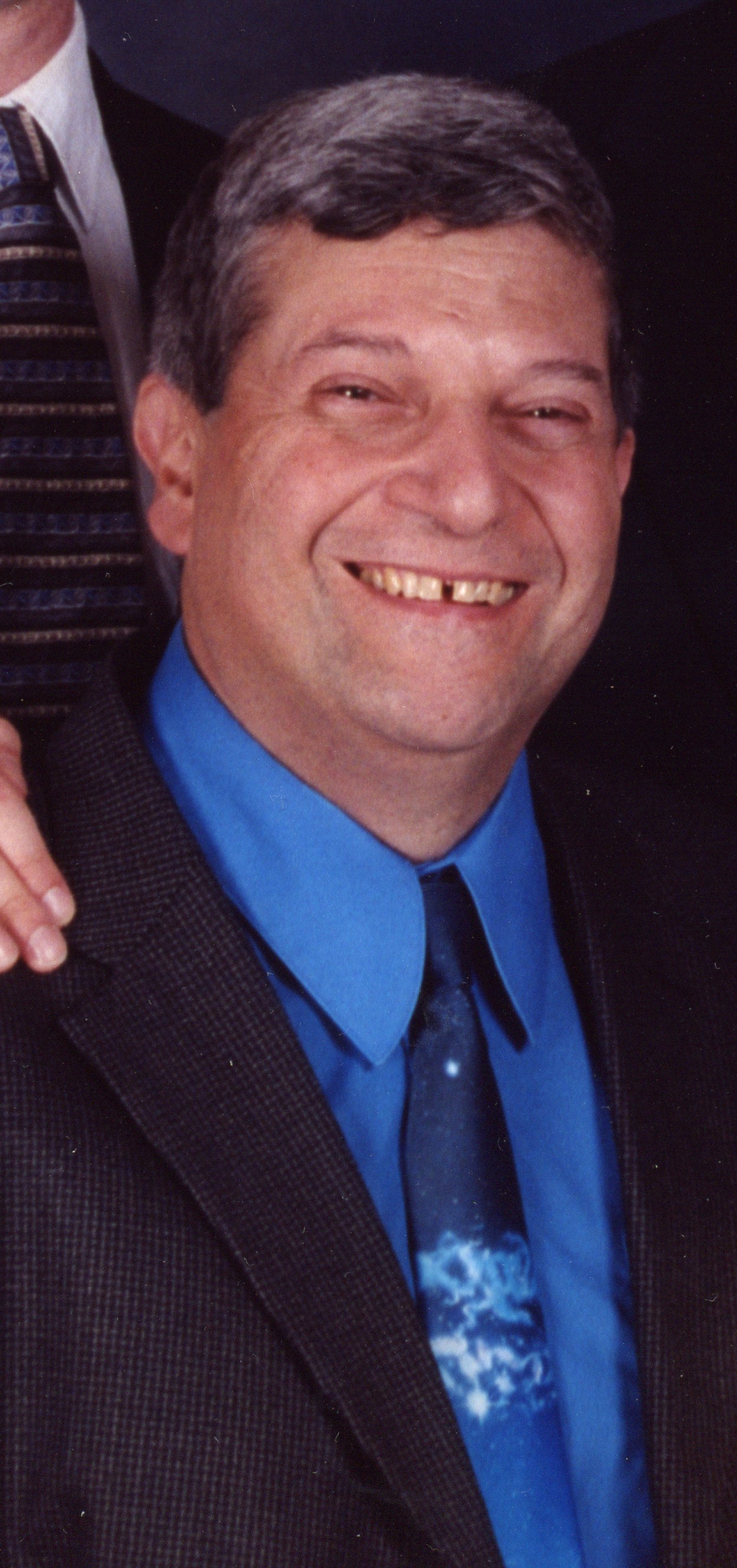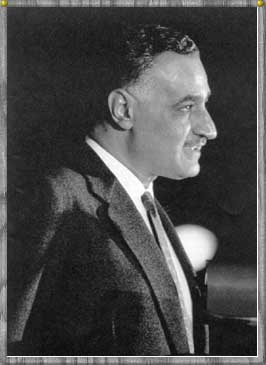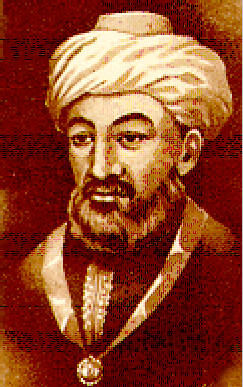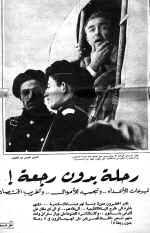GROWING UP UNDER PHARAOH

also available in pdf
Growing up under Pharaoh

My brother gave a talk at his synagogue last Friday. I thought http://groups.yahoo.com/group/egyjews/ members would like to hear what he had to say. Please lend him your ears ...
Maryse Zeitouni
15 October 2004
Adat Reyim Congregation, Springfield, Virginia
The 601st commandment of the Jewish faith states: "Thou shalt never again dwell permanently in the Land of Egypt". [Deut. 17:16]
Well -- looks like I blew it from day one.
I was born in Egypt in early September, a permanent dweller. A few days later was Yom Kippur, and already I was learning to beat my breast in repentance. "For the sin that we have committed by dwelling permanently in the Land of Egypt".
So I was born in Cairo in 1949 and lived there until I was 18. Then I came to the United States as a refugee, and have lived here for the past 37 years. And just about every day in these 37 years, I was subjected to... THE GRILLING.
You see, when *you* meet somebody, most of you just say you are from Chicago and move on to another subject. I can't do that. I have to schedule between 20 and 30 minutes for that process.
-Mr Mizarhi! That's an interesting accent you have! Where are you from?
-My accent is French.
-French! I took French in high school. What part of France are you from?
-I am not French. I am Italian.
-Italian! Wow! I should have guessed "Mizarhi" is an Italian name. So did you live in France or in Italy?
-Neither. I was born and raised in Egypt.
-Egypt! I've always wanted to go there and see the Pyramids. And frankly, just between the two of us, I've always had a soft spot in my heart for the Arab side, and not the other side, if you know what I mean.
-I am not an Arab. My name, MIZ-RA-HI, is Hebrew. I am Jewish.
-Jewish! But... How come you...
And so on, and so forth. Sometimes I try to make it short and say:
"I was born and raised in Egypt, in a Jewish Italian French-speaking family, and now I am an American."
But it doesn't work. Invariably, the response is: "Whoa! Whoa! Not so fast! You say you are... French?"
I am still open to suggestions on how to avoid telling the story of my life to everyone I meet, without lying or being rude. (Just kidding. You can ask me any question you want.)
Indeed, my family, like so many Jewish families outside the US, is a linguistic and cultural zoo.
In Israel, I would be called Sephardic. But in reality, there are the real Sephardic Jews, or descendants of the Jews of Spain, and the Mizrahi Jews, or Eastern Jews, who never left the Middle East. My father was a real Sephardic Jew. His name was Mizrahi, even though he was not Mizrahi. My mother *was* Mizrahi, even though her name was not Mizrahi. Clear?
My native language is French. I was educated in French, then in Italian, then in both French and Arabic, then in English. These switches were all forced on me by the political winds. My brother was educated in French, then in Arabic. My sisters were educated in English. My father's native language was Ladino -- Judeo-Spanish -- and he was educated in Italian. My mother's native language was Arabic, and she was educated in French. Her family hailed from Syria and Lebanon. My grandfather was from the island of Rhodes and my grandmother from Salonica, Greece, where Greek was spoken. My great-grandfather, Rabbi Yomtob Mizrahi, was from Smyrna, Turkey, where he built a synagogue and spoke Turkish. And, of course, everybody went to services at the synagogue and prayed in Hebrew!
Pay attention -- there will be a test afterwards!
My children's native language is English. I wonder what *their* children's native language will be? Hebrew, perhaps? My relatives are now scattered all over the world: Israel, the US, Australia, Belgium, Spain, Portugal, Venezuela, Brazil, Mexico, Costa Rica, Guatemala, and I am probably forgetting some. Such is the lot of the Jew.

A Jewish community has existed in Egypt since time immemorial. Alexandria had a large community 2500 years ago, and it flourished for hundreds of years. Maimonides lived and worked in Cairo more than eight centuries ago. The Cairo Genizah, that treasure trove of Judaica discovered in the 19th century, attested to a long unbroken Jewish presence in Egypt.
 Beginning in the middle of the 19th century more Jews were invited to Egypt by Mohammed Ali and his successors, the leaders appointed by the Ottoman Empire. The Jews came and helped usher in an economic miracle. They produced ministers, intellectuals, merchants, physicians, nationalists, bankers, industrialists, builders. All large department stores in Egypt but one
were founded and owned by Jews. The community was diverse. There were poor Jews, middle-class Jews, rich Jews, almost in equal numbers. We were in the middle. My father had a small clothing store in downtown Cairo, employing two people, not far from our apartment.
Beginning in the middle of the 19th century more Jews were invited to Egypt by Mohammed Ali and his successors, the leaders appointed by the Ottoman Empire. The Jews came and helped usher in an economic miracle. They produced ministers, intellectuals, merchants, physicians, nationalists, bankers, industrialists, builders. All large department stores in Egypt but one
were founded and owned by Jews. The community was diverse. There were poor Jews, middle-class Jews, rich Jews, almost in equal numbers. We were in the middle. My father had a small clothing store in downtown Cairo, employing two people, not far from our apartment.
Most Jews were denied Egyptian citizenship, even if born in the country. They were "stateless" -- they had no nationality, and therefore no protection from any entity. Some were able to claim a European citizenship through their descendance. My family was Italian because my grandfather was born and raised in the island of Rhodes, which was for a time administered by Italy. Both my parents were born in Egypt, but none of my grandparents.

The Jews of Egypt were close to 100,000 strong in 1948, when Israel was created and Egypt promptly sent its Army to destroy it. Then the noose began to tighten around their collective neck. Only 10,000 remained after the 1956 Suez war. Only 1,000 remained at the time of the Six-Day War in 1967, including myself. I left in late October 1967, one of the last Jews to leave Egypt. Today not more than 100 elderly people remain. [Comment added by HSJE, October 2004: We estimate the figure to be no more than three.]
How did the noose tighten? The larger businesses were seized and controlled by a government agent, with the owner becoming an employee paid a small salary. Import and export licenses were revoked, including my father's. Government employees were fired. Many places were closed to Jews. They could not find jobs. They were blacklisted. Bribes and protection money were demanded. Bank accounts were frozen. Surveillance was tight and none-too-subtle. Fear was pervasive. Our mezuzot were on the inside, never on the outside. Foreign travel was banned, unless it was one-way only. Hundreds were arbitrarily arrested, detained, tortured, humiliated, expropriated, and expelled, forced to sign papers saying they were "voluntarily" relinquishing all their assets and would never come back to Egypt. There were occasional riots, killings, bombings and arson in the Jewish Quarter. There was no a! ccountability: The Jews were mostly stateless, so they had no protection, remember? They had no one to speak for them.
Some people have pointed out to me that many foreigners and even some Egyptians received similar treatments. That is correct. But, as Elie Wiesel said in a different context, 'Not all victims were Jews, but all Jews were victims'.
You can imagine the incongruity of sitting at the seder table year after year, in Cairo, Egypt, to celebrate how God took us out of the Land of Egypt, the land of slavery, with a strong hand and an outstretched arm, and wondering: What are we still doing here, when things are getting from bad to worse year after year?
In all, there were 850,000 Jewish refugees from Arab countries, from Morocco to Yemen, not counting their descendants. Ancient communities uprooted one after the other. So why doesn't the world know about us?
Because when all these things were happening to us, CNN and *The Washington Post* were not there to splash our misery all over the evening news and the front pages. The United Nations was not passing resolutions highlighting our plight. After all, we were just Jews, and that's what Jews do, right? Roam the world as eternal wanderers, starting over from scratch in foreign lands again and again, sometimes two or three times in a lifetime. And I do mean "scratch", as in "zero", as in "zip". Since I left Egypt, I earned every penny I spent.
Also, Israel and the Jewish communities throughout the world did not let us rot in refugee camps in the Negev, teaching us hatred, keeping us at subsistence levels, denying us citizenship, inciting us to commit terrorist acts, and using us as political pawns, as the Arabs did with their Palestinian brethren. They welcomed us with open arms. They gave us rights and citizenship. They allowed us to have a dignified fresh start. Two-thirds of us went to Israel, one third in the Diaspora.
The hardest part of growing up in Egypt was seeing all my friends and entire huge extended family disappear around me one by one, year after year. I started this quiet continuous mourning process when my first girlfriend had to leave Egypt. We were all of seven years old. In the end, only my parents and I remained. My father was one of those Jews who say, "This is my home, this is where I was born, and this is where I will die. Let's trust that things will improve.". Sometimes this is the right attitude to have, and sometimes it is the wrong attitude. It's not always clear ahead of time. My father died in Egypt in 1973, and at that time my mother came to live with us, and had the joy of seeing her grandchildren grow around her for 20 years.
The second-hardest part was the constant barrage of propaganda that insinuated itself into the school curriculum. It masqueraded as "Arabic literature" or "government", or "civic instruction". That's when I was forced to memorize passages in Arabic filled with anti-Western and anti-Israel diatribes, sometimes crossing the line into antisemitism. I had to recite them in class. I still have recurrent nightmares about those experiences. For example, one of the many "poems" I was forced to recite talked about how "Beautiful Palestine will soon become a homeland for us and a mass graveyard for the Zionists". I was 13 in that particular instance. This was my substitute bar mitzvah. As the community disintegrated around me, I had no opportunity for any formal Jewish education. I never heard any talk of peace or accommodation with the Jews. Then as now, the airwaves and the ! press were filled with venom.
When the Six-Day War came in June 1967, all Jewish males ages 18 to 60 were jailed. They faced sadistic torture and humiliation under appalling conditions, as later documented by survivors. My family was spared that because I was a few months shy of my 18th birthday, my father was over 60, and the rest of my extended family had already left years before.
I had to endure four months of roadblocks and uncertainty from the time I applied for an exit visa to the time I left. And I was one of the lucky ones -- for many it took years. I never understood why. If they didn't want us, why didn't they just let us go? It went without saying that they would take everything we owned, so why didn't they hurry up so they could steal it faster? I don't know. From Pharaoh to modern Syria to the defunct Soviet Union, our tormentors said "Yes, we hate the Jews, but we won't let them go. We prefer to enslave them, exploit them, hold them hostage."
Finally, on October 20th, 1967, I got my
exit visa. Pharaoh decided to let *this* Jew go. It gave me two weeks to leave. On both sides of the exit visa stamp, there was a red "Y" in Arabic between quotation marks, added by hand in red ink. It stood for Yahudi -- Jew. A signal to those who would later check this visa to harass me as much as possible.
]
Years later, when I started having children, I stuck this exit visa in our family Passover Haggadah, next to the traditional words, "B'chol dor vador, hayyav adam lir'ot et 'atsmo, k'illuhu yatsa mimmitzrayim -- In every generation, every Jew must consider that *he, himself* was *personally* rescued from Egypt." That's always been easy for *me* to say!
It's only now that Jews from Arab countries are beginning to speak out about their experiences. Before, the wounds were too fresh, the fear of speaking out was still there, and we were too busy learning to survive and build a future in our new environments. And we couldn't speak our new language well enough! Also, as we age, we feel the need to record our history for posterity. And, as the news media choose to strongly highlight the Palestinian side, we feel the need to present the other side of that same coin.
Many groups have been formed recently in communities with large populations of Jews from Arab countries. We had a conference in Washington, DC, last year, attended by a Congressman and other notables. The American Sephardi Federation is urging us to speak out -- go to jewishrefugees.org. I help moderate a Yahoo list for Jews from Egypt. A "Historical Society of Jews from Egypt" has been formed in Brooklyn, with a web site at hsje.org. It is currently attempting to retrieve our Judaica artifacts from the Egyptian government, so far with no success.
I find it mind-boggling that, in spite of the peace treaty with Israel, in spite of close relations with the US, in spite of the tens of billions in US aid, Egypt is still trying to pilfer what little is left of the Egyptian Jewish heritage.
-I am not talking about the fact that Egypt still has not made any restitution to its Jews for billions of dollars in confiscated assets, as the free world has done with other Jewish communities.
-I am not talking about the fact that we were forced to leave with only the shirts on our backs.
-I am not talking about the fact that Egypt still has not apologized for its past evil treatment of Jews, as the free world has done with other Jewish communities.
-I am not talking about the fact that Egypt still has not recognized, in its official history books, the great contribution Jews have made to their country of birth, as the free world has done with other Jewish communities.
-I am talking about Egypt refusing to return simple items that tell us our story: Torah scrolls, prayerbooks, libraries, Judaica artifacts, even copies of the plain rabbinical archives that tell who we are and who our ancestors were!
I bear no animosity towards those who were not personally involved in doing this to us. If we Jews wasted time hating collectively all the groups that have wronged us in the past, we wouldn't be doing anything else. We would never have been able to contribute to human progress as we have. It's well known that hatred destroys the haters first. We Jews roll with the punches and move on.
I went to school with Christian and Muslims Arabs. I still talk to them every day -- have been for years, since the Internet came of age. There are about 40 of us constantly chatting away in an electronic forum. I had an emotional reunion with some 20 of the friendlier ones, in Paris, in May 2000. I talk to them on the phone -- in Egypt, Saudi Arabia, France, and wherever else they live. They showed a lot of concern for my welfare on 9/11, when Arab terrorists ran those planes into our buildings.
As long as we stay away from politics or religion, relations are very cordial and we treasure the memories of being schoolboys together in difficult times. *At the personal level, relations are always good*. That's the way it is in the Middle East. People are friendly, hospitable, and in private they'll tell you what you want to hear. In public, however, they will either say nothing or go with the flow, usually out of fear. So you can never be sure what they are REALLY thinking.
Let me end on a positive note. The Lord indeed works in mysterious ways. I am a lot happier living in the United States than I could ever have been in Egypt, even under the best of circumstances. On this 350th anniversary of the coming of the Jews to America, I, and all of us, should be thankful for the many blessings our great country offers, help protect them, and never take them for granted.
Hinne! Lo yanum v'lo yishan shomer Yisrael.
Behold! The Guardian of Israel neither slumbers nor sleeps. [Ps. 121:4]
Shabbat shalom.
